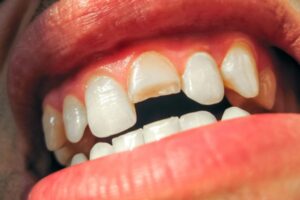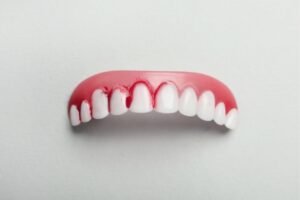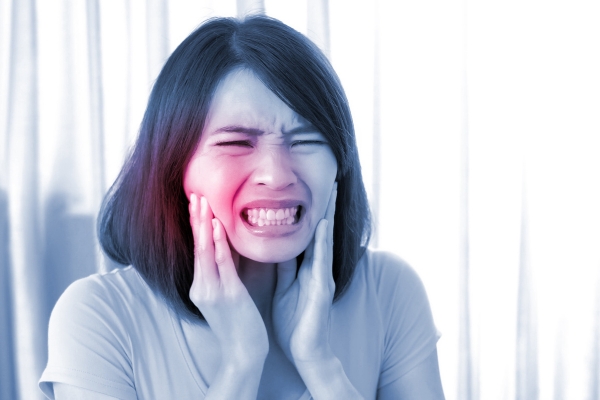Introduction
Dental emergencies can happen anytime, often when you least expect them. They can be painful, stressful, and require immediate attention. Knowing what to do and when to seek professional assistance when dealing with a dental emergency.
This article will examine the most frequent dental crises people may experience, go over ways to avoid them, and emphasize when to contact a dentist.
What do you mean by a Dental Emergency?
A dental emergency is a condition that needs to be treated right away to relieve discomfort, stop more issues from arising, and maintain oral health. These situations can be sudden painful, and often interfere with daily activities.
Understanding the types of dental emergencies is essential for quick response and effective treatment.
Common Dental Emergencies
A. Toothache
Among the most common dental emergencies is a terrible toothache. Several illnesses, including gum disease, dental decay, abscesses, and broken teeth, can cause this excruciating pain.
Over-the-counter painkillers may offer temporary relief in such cases, but you should see a dentist immediately to address the underlying issue.
B. Broken or Chipped Teeth
Accidents or biting on complex objects can lead to broken or chipped teeth. This affects the aesthetics of your smile and can also be painful and expose sensitive tooth structures.

In case of a fractured or chipped tooth, gather any broken pieces, rinse your mouth with warm water, and seek immediate dental attention to restore the tooth’s functionality and appearance.
C. Knocked-Out Tooth
A knocked-out tooth is a dental emergency that requires swift action to increase the chances of saving the tooth.
If your tooth gets knocked out, gently rinse it without scrubbing, try to place it back in the socket if possible, or keep it in a glass of milk and see your dentist immediately. When it comes to treating a knocked-out tooth, time is critical.
D. Gum and Soft Tissue Injuries
Accidents or trauma can lead to injuries to the gums and soft tissues in the mouth. This can result in profuse bleeding, swelling, and severe discomfort.
To manage such emergencies, rinse your mouth with warm water, apply pressure to control bleeding with a clean cloth, and seek dental assistance to address the injury and prevent infections.
E. Lost or Lose Fillings or Crowns
Loose or lost dental fillings and crowns can expose sensitive tooth structures and cause discomfort. While it might not be as painful as other dental emergencies, it requires prompt attention.
Reattaching them yourself is not advised as it may be more harmful than beneficial. Instead, schedule an appointment with your dentist to have them properly repaired or replaced.
Prevention Of Dental Emergencies
Preventing dental emergencies is essential for maintaining good oral health. Here are some tips to help you avoid these unexpected situations:
1. Maintain Good Oral Hygiene:
Regular brushing and flossing can prevent dental decay and gum disease, reducing the risk of dental emergencies.
2. Wear a Mouthguard:
A mouthguard can protect your teeth from injury if you participate in contact sports.
3. Avoid Chewing on Hard Objects:
Refrain from chewing ice, hard candies, or non-food items to prevent tooth fractures.
4. Regular Dental Check-ups:
Schedule regular check-ups with your dentist to identify and address potential issues before they become emergencies.
5. Healthy Diet:
A balanced diet low in sugary and acidic foods can help maintain strong teeth and gums.
When to Call a Dentist?
Knowing when to call a dentist is vital in a dental emergency. Here are some guidelines to help you determine when immediate dental attention is necessary:
1. Severe Pain:
A severe or chronic toothache indicates that something is wrong and needs to be fixed immediately.
2. Bleeding:
Uncontrolled bleeding from the mouth or gums should be addressed immediately, especially after an injury.

3. Knocked-Out Tooth:
A knocked-out tooth should be treated within 30 minutes for the best chance of saving it.
4. Infection:
Infection symptoms, such as fever, edema, or an unpleasant taste in your mouth, must be treated immediately to stop the illness from worsening.
5. Damaged Dental Restorations:
Loose or lost dental fillings, crowns, or other restorations should be fixed immediately to prevent further complications.
In conclusion, Dental emergencies can be both painful and stressful, but knowing how to respond can significantly improve oral health. In such times, remember that DNA Dental Studio is here to provide expert care and support to ensure your dental emergency is handled effectively.
By following preventative measures and knowing when to call a dentist, you can significantly reduce the likelihood of dental emergencies. Prioritizing your oral health is essential, and preparing for dental emergencies is crucial to maintaining a healthy and beautiful smile.

